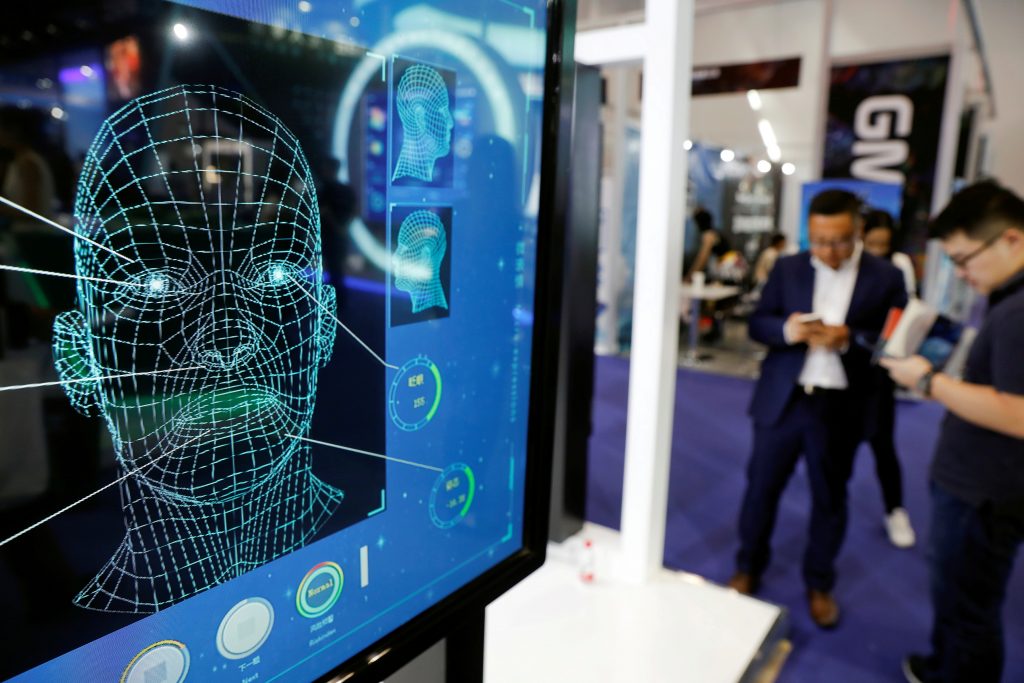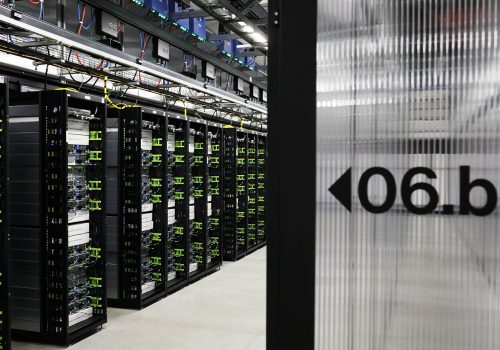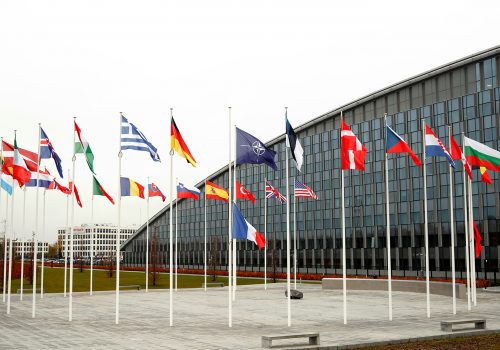The United States is late in joining an “existential” struggle with China for supremacy in artificial intelligence (AI), but leaders from the White House, Congress, and the Pentagon are finally stepping up.
That’s the assessment of former US Deputy Secretary of Defense Robert O. Work and Oracle CEO Safra Catz, who joined an Atlantic Council Front Page event Thursday hosted by the council’s GeoTech Center to discuss the National Security Commission on Artificial Intelligence (NSCAI) report they helped write. The report details how the United States can maintain AI supremacy—which China aims to seize by 2030—by creating leadership structures starting at the White House, investing in a robust talent pipeline, rebuilding domestic microchip manufacturing, and pumping $40 billion into AI research and development.
Work echoed US President Joe Biden’s framing of the China rivalry in his address to Congress on Wednesday night as a battle between democracy and autocracy.
So what will it take to win? Here are some key takeaways from the conversation, moderated by David McCormick, CEO of Bridgewater Associates and chairman of the Atlantic Council’s International Advisory Board.
- China’s focused strategy, which has allowed it to leapfrog the United States in areas like facial recognition, must be matched, Catz said. “US efforts to sustain technology leadership remain disparate, disconnected,” Catz said. “For example, there’s no US national technology strategy even. We all work separately. We all work differently.”
- Winning this competition will require stronger partnerships with other democracies across the West. Work advised limiting export controls and ratcheting down “Buy American” requirements, which can turn off allies. “We emphasize our allies and partners, but we have to treat them as true allies and partners,” Work said.
- McCormick asked whether future US generals and admirals will gain their posts “because of their competency and expertise in AI.” Catz theorized that those future leaders will have “captured [AI] and harnessed it for the success of the country, and it’ll be maybe battles we won’t even know about, battles averted, battles and secret wins that will have kept us safe.” Work, a former Marine himself, called out the “bold innovation” of Gen. David H. Berger, the commandant of the Marine Corps, for “literally redesigning the Marine Corps for an AI future.”
- Work, who served as a top Pentagon official under former Presidents Barack Obama and Donald Trump, said he’s been thinking deeply about these issues since 2014, and yet has seen little progress. But now the urgency is rising, he said, with bipartisan buy-in and support for the NSCAI recommendations, nineteen of which have already been signed into law. “I just have this sense,” he said. “We’re about ready to throw down and say: ‘Let’s go.’”
Watch the full event
This was part of a series of events and activities from the GeoTech Center on how societies can best adopt AI, from smart international partnerships to making sure national policies don’t have blind spots.
Daniel Malloy is the deputy managing editor at the Atlantic Council.
Further reading
Image: Visitors check their phones behind the screen advertising facial recognition software during the Global Mobile Internet Conference at the National Convention in Beijing on April 27, 2018. Photo via Damir Sagolj/Reuters.



